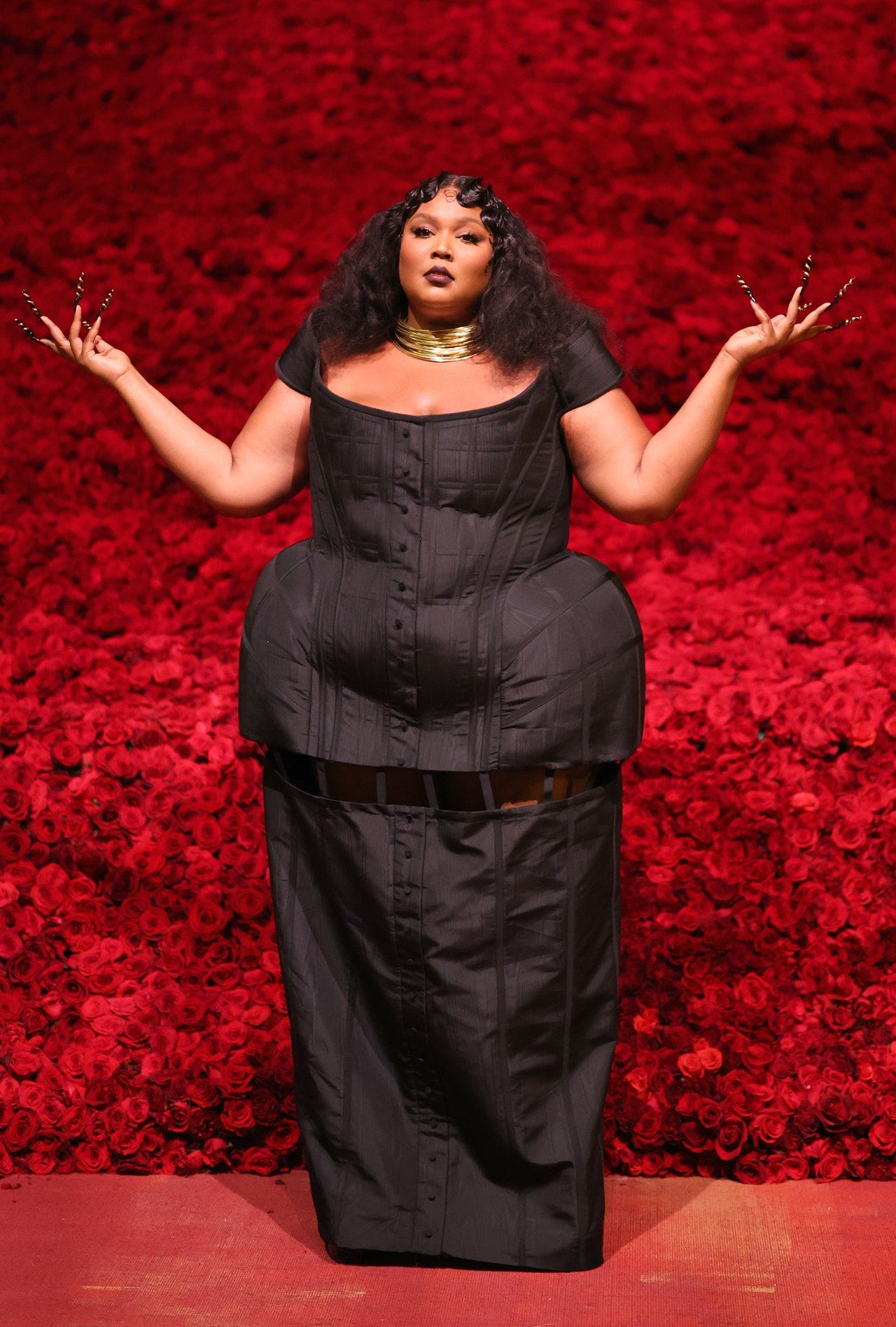TW: Matty Healy, pedophilia, racism, etc.
Oh, hello there—
On March 31st, the French installation artist Claude Lévêque, once his nation’s pick for the coveted Venice Biennale slot, was indicted on counts of pedophilia and coercion after being accused of sexually assaulting multiple teenagers in the early ‘90s. When the allegations broke in 2019, Lévêque defended himself to the press by framing his actions as the “mores of another era, where this sort of thing could happen between a ‘master’ and his ‘apprentice’”. According to his victims, “this sort of thing” included the rape of 10 year old boys.
Lévêque rose to international regard doing a corporate-friendly version of Tracey Emin’s slick, disruptive neon signage, eventually churning out Koons-adjacent public commissions to the delight of hedgefunders and the chagrin of the everyday Parisians who had to look at them. His takeover of the Opera national de Paris was met with a collective eye-roll from ticket holders, who were nonplussed by the presence of giant gold Michelin tires flanking the institution’s grand staircase.
He is perhaps best known for threading a wriggling strip of red neon down the center of I. M. Pei’s landmark pyramid sculpture outside the Louvre Museum in 2014, yet another contribution to visual culture that no one really liked.
I begin an essay on 1975’s indie-pop frontman Matty Healy with the plight of an aging pedophilic Frenchman not because I want to compare ill-conceived trolling to violent, nauseating sex crimes, not even because I want to center motherfucking Matty Healy, for that matter, but because in order to understand the the contours of fame, it's useful to articulate the actual stakes of cultural accountability for public figures in 2023.
French society, less puritanical than its stuffy American cousin, never took to the carceral flavor of #MeToo, making the somewhat tidy arrest of Leveque an anomaly, especially given the allegations' multi-decade timeline. Leveque, while relatively famous, is now 70 and far past his heyday, fetching modest auction prices and stirring diminished devotion from his buyer base. Neon lighting is no longer the technically complex and materially rich artistic substrate that it was when Flavin or Ligon introduced it to the white cube. Instead of an edgy, re-appropriated industrial metaphor, contemporary custom “neon”, materially defanged by the synthetic crackle of LED technology, feels like a Pinterest purchase for millennials who want their homes to look like cocktail bars (guilty as charged). The qualities that once required close collaboration with secretive, union-insulated family shops well-accustomed to disfigurement as a result of their fealty to the noblest gas can now be reasonably reconstructed via Amazon wishlist. Neon is over, neon is done, and Claude Leveque helped murder it. Along the way, he violated kids, kids who trusted him, kids who wanted a chance at that storied blue-chip glow.
So, Leveque is evil, yes, but he's been evil, by his own admission, for over thirty years. It was social disposability that sealed his fate, not transgression. This was the case for so many American #MeToo stories—Jeffrey Epstein and Harvey Weinstein and Bill Cosby could be sacrificed once they faded sufficiently from their former glory as kings or kingmakers. On TikTok, laymen with reliable Wifi connections pillory the weird, wild personal and legal choices made by low-rent internet character actor Colleen Ballinger six years after the twilight of her online popularity. “Why wasn’t she canceled earlier?” college students opine on their phones in front of green-screened video footage of Ballinger’s creepy, racist rants and songs. Elsewhere on the app, a sincere young mom from the Deep South wonders aloud why we’re all not dedicating more energy to de-platforming country singer Jason Aldean, how he’s deep into Q Anon, how he’s made a covertly racist song about…something. I scroll away before I can find out.
Lizzo, the bright and palatable fat Black pop star, is currently being sued by two former employees for creating an untenably toxic work environment. When I made a video pointing out that popular exhaustion with identity politics working in tandem with fascism creep across culture guarantees that powerful media figures sporting axes of marginalia, a la Ellen Degeneres, will be first in the chopping block in the court of public opinion, I was immediately accused of overlooking Lizzo’s crimes, of being a Lizzo apologist. When I suggested that the circus surrounding Ariana Grande’s somewhat banal infidelity feels like a refracted Republican talking point decrying the fall of the all-American family unit, I was informed that I, a woman who refuses male friendship on principle, am a weak-willed man-defender, reeking of internalized misogyny.
Comments abound reminding dissenters to the White liberal cult of moral purity that celebrity transgressions are “unacceptable”, to which I can't help but respond, “to whom?”? The entertainment industry would cease to exist if it the entertainment industry was equitable or fair. Our mass convenience and distraction is more important than the human rights of the people producing those sparkling diversions. White liberalism’s answer to structural oppression, HR, DEI, and the inherent surveillance both of those approaches entail, have failed to protect any entity outside of major corporations and the occasional private citizen for whom retroactive, hard-won payouts can be realistically swapped for justice. More importantly, the mid-aughts choice feminist hope that intellectualizing engagement with mass media properties would give more women writing jobs and ennoble our consumption patterns to literature has rung miserably hollow. Applying critical theory to the Kardashians is just fucking dumb, it turns out.
The DiAngelo-ification of celebrity helps the commentariat off-shore it's collective guilty conscience and tokenize individual artists who represent disposable populations. Lizzo did not inspire anyone to care about or empathize with fat Black women. Lizzo’s brand allowed white women to love themselves by comparison, rendering her a glimmering grotesque soundtracked by empty platitudes. She deserves better, as do all Black woman artists. I am reminded of Joan Didion’s reflections on the Black Panther Huey Newton, that to be considered a symbol is to be dehumanized by design. The thing is, Lizzo is no Huey Newton, and she knows it. She doesn’t need to be demonized by the state because she is a willing agent.
The most insidious thematic link between the aforementioned scandals is not merely the failure of white liberal accountability optics, but the revelation of their planned obsolescence. Requiring iron-clad ethics of entertainers as a prerequisite to political participation guarantees they can’t play ball - the alt-right certainly doesn’t care about shit like that. The impossibility exists on purpose.
That brings us to Matty Healy.
Matty, everyone’s problematic ex-boyfriend, has chain-smoked his way into the pop elite in a cloud of translucent indie affect, trolling his 2013 audience of Xillennial girls and gays with no shortage of glee along the way. The 1975, his band, is distinct not just in their commitment to an alter-modern recapitulation of nostalgia, but in their unique ability to improve over time. Their 2022 album, Funny in a Foreign Language, arrived a decade after the band's atmospheric Tumblr-minted debut. The project was basically perfect. Suddenly, at a sober, sensible 33, the somewhat culturally minor, rakish Healy was touring arenas he couldn't have accessed pre-pandemic. The press coverage grew frantic, and as Matty’s star rose, the awkward process of introducing a mouthy recovering addict to a Top 40 audience became its own sub-category of public relations. Matty also dated Taylor Swift for about forty minutes during the crest of her record-breaking Eras Tour, which made everyone everywhere completely fucking insane.
Matty and Taylor’s dalliance made everyone everywhere completely fucking insane on account of Matty’s penchant for bratty, ironic, edgelord humor that wouldn’t register as particularly offensive if he was a leftist meme curator or a philosophy grad student picking up shifts at his local dive bar. Unfortunately, he’s quite famous, and famous people aren’t allowed to be funny—not really, anyway. He’s gotten canceled for being racist, canceled for being anti-semitic, canceled for being sexist, canceled for kissing girls at his concerts, canceled for misbehaving in Malaysia…the list rages on. Of course, when cheeky attempts are subversion are baked into a high-profile branding enterprise, “cancellation” functions more or less like an electric fence for a Cane Corso, especially if you’re a white guy. (Azaelia Banks, who is also brilliant, funny, mean, and complicated, has never been afforded the public grace Matty enjoys).
It's wildly speculated that Matty and Taylor broke up because there wasn't a way to sanitize him thoroughly enough to preserve Taylor's nascent political reputation, one defined by careful, occasional acknowledgements that gay people are probably fine and everyone should just get along. Taylor Swift campaigns for Hillary, for God’s sake. Taylor Swift does not make 9/11 jokes on Twitter.
Still, the attempted polish job, however futile, produced a spate of very funny journalistic attempts to make Matty apologize while pretending to opine on the State of Men in the West. The goofiest amongst these was a profile for the New Yorker by Jia Tolentino, who was herself run off the internet pre-lockdown for defending her parents against allegations of human trafficking. The last five years of Tolentino’s career have seen her transition from the Hot Young Essayist on the New Yorker staff best known for her open-ended, precocious It-girl charm to a serious, low-key journo-mom, a stark contrast to her days slinging personal essays at Jezebel in 2012.
That shift is palpable in this profile, which feels dry, unfocused, and hurried. It also produced this sound bite, which the internet ate alive.
“It doesn’t actually matter. Nobody is sitting there at night slumped at their computer, and their boyfriend comes over and goes, ‘What’s wrong, darling?’ and they go, ‘It’s just this thing with Matty Healy.’ That doesn’t happen.”
The idea that people don't care about a risky Matty deadpan with racist implications (about porn, no less! people really fucking hate porn) constitutes a kind of wishful thinking that borders on delusion. But then again, Matty has always been overly generous to his audience. The 1975’s last tour, for instance, involved fairly obvious performance art elements meant to comment on Matty’s battle with addiction and the affectual seduction of the online Manosphere. He staggered around with a fake flask in the set's first half hour, then gnawed on some raw meat in a nod to right-wing pseudo-intellectual Jordan Peterson. Online dialogue about these decisions mostly relegated his choices to the “zany” and “pretentious” categories, but, while Matty might absolutely embody those qualities…the choices made thematic sense. Funny in a Foreign Language, like so much of the 1975’s catalog, asks a simple question with a messy answer— “how do I do manhood when manhood is the root of all evil?”
“Looking For Somebody To Love” is an up-tempo, Springsteen-inspired stomper written from the perspective of a school shooter, heady stuff for a pop track featuring a saxophone solo. Zinging from plaintive to irreverent, the lyrics bloom forth from the interior psychology of a boy inflicting death on his peers for peculiarly American reasons. Matty’s frank tenor cuts through the clanging, industrial production (thanks Jack Antonoff) with the same surgical precision he applies to his razor-edged insouciance poetics, spiky, posturing, too close in tone to the “liberal academic” model he believes pop music should ignore.
Somebody lying on the field
Somebody crying on the phone
Somebody picking up the body of somebody they were getting to know
Maybe we're lacking in desire
Maybe it's just all fucked
But the boy with the plan and the gun in his hand
Was l-l-looking for somebody to love
(Hey, yeah, woo)
“Looking For Somebody To Love” is a protest anthem for the algorithmic age, an exhausted, synthetic gem that glints sardonically through the foot-thick fog of the 24-hour news cycle. It’s artistic integrity also reminds us of a simple, but oft-forgotten truth in the realm of cultural production, corporate or un—morally consistent people make stupid art. I don’t think a person who didn’t fuck up on a fairly regular basis, who wasn’t haunted by their own, as Pitchfork put it, “trustafarianism” could sing the words “I’m sorry if you’re living and you’re 17” and make it work.
Walter Benjamin wrote that “there is no document of culture that is not at the same time a document of barbarism”, a position Deleuze & Guittari sustained in their assertion that “there is no specific form of existence that can be labeled psychic reality”. Both feel fitting in the context of Healy’s creative salience, a rock-star status that trafficks in nervy frankness unfit for the gutless liberal media machine—he doesn’t pretend to fuck fat chicks, or hate Dave Chappelle, or read Sally Rooney. He stares into the blaring sun of culture and cries as blindness overtakes his gaze. He fails. He succumbs. He wants out loud.
Any discussion of the ontological Man in Crisis, specifically against the backdrop of lapsed cultural feminism, must engage the central specter of fantasy as its raison d’etre. A lot of smart people have recommended a book to me called Men Who Hate Women by Laura Bates. I read it. I loathed it. This book is not just badly written, but intellectually irresponsible. It’s opening line, “Most people have never heard of incels”, bespeaks a deep and trenchant ignorance about the subject matter at hand, post-ironic internet culture, even the way white men constitute their shared violent imaginary. Men Who Hate Women, in its attempt at pop-feminist revisionism, flattens and ignores the deeply integrated, searingly tender individualism that haunts and perverts the minds of boys that would be better served by egalitarian politics.
In his 1977 book Male Fantasies, German sociologist Klaus Theweleit took on the gendered dynamics of political and sexual entanglement dialectics in Nazi Germany. Relations between men and women, Theweleit wrote, are never merely about arousal, but exist according to social structures, the “object of law”, in other words. “The sexuality of the patriarch is less “male” than it is deadly”, said Theweleit, “just as that of the subjected women is not so much “female” as suppressed, devivified”. He did not accept Fascism as the organic result of sexual inhibition, instead arguing that Fascist sexuality was ideological in nature, an extension of Gustave le Bon’s characterization of mass unrest, “The Crowd”, as a gendered subject, feminine in its irrational susceptibility. By relying on shock value and old-fashioned white feminist separatist politics as the latticework for her arguments against cultural misogyny, Bates has unwittingly centered the male fantasy machine again, allergic to alternative, seduced, like Healy, but the candor of abjection.
The contemporary groundwork for “toxic” masculinity as an internet buzzword can be traced to Australian sociologist R. W. Connell’s gender order theory, which recognizes that multiple masculinities vary across time, society, cultural, and the singularized, engendered idiolect. “Hegemonic masculinity”, the top of her theoretical foodchain, is defined as a practice that legitimizes men’s dominant social position not just above non-men, but marginalized men, a subterranean stratification required to maintain patriarchal heirarchy. This is important. By articulating the prerequisites for Ur-manhood, hegemonic masculinity feminizes, and therefore devalues, populations of men who don’t or can’t measure up, creating an oppression dialetic that is essential for masculinity’s reification. This is why discussing “socialization” in terms of gendered identity is such a slippery business—most transgirls don’t actually experience hegemonically “male” socialization. Many cis-men don’t either. The “socialization” of a young fat girl, for instance, is more androgynously inflected than we’re typically willing to acknowledge.
The only way out is through, of course. Inceldom, anti-feminism, and the mass disaffection of young men throughout the developed world are not all the results of technological isolationism, sexual frustration, or bad marketing. The intersection therein represents purposeful economic policy enacted through the body of the citizen-subject, a Fascism test-site writ sanguine. Every new political science title from Verso or Duke University Press instructs its readers to “invest in community” as the answer to late capitalism’s ills—a catchall that ignores how difficult and hard-won community work really is (I certainly don’t engage)—essentially employing the language of choice-feminism to decry its laissez-faire anti-praxis. Men need community, which the alt-right knows all too well. That’s why Matty Healy matters—his ethical messiness, cerebral anxiety, and musical attempts at gendered investigation aren’t negated by his social privileges, but bolstered by them. He is the zeitgeist, and the zeitgeist fucking sucks right now. We need Matty because we are Matty, we just don’t want to admit it.
Please don’t misunderstand—I’m not some heinous trad-libertarian masquerading as a leftist. I’m simply bored by white liberalism’s toothless refusal to do anything other than stoke the flames of call-out culture at the expense of workable class politics or organized revolutionary overhaul. Radical queerness doesn’t halt at carceral blame-games or celebrity worship, and “community” requires meeting people where they live, not some conceptual, precious plateau where perfection precludes the efforts promised in the first place.
In the words of a young man
Already damned
He’s l-l-looking for somebody to love.
Pop can’t save us, but the truth, however knotted, ugly, and disappointing, can set us free.
Thanks for reading and subscribing! Sorry for the unexpected hiatus.
Until next time,
xoxo
B










Babe this one has TEETH you did so good. WELL worth the wait 💙
I really loved reading this. The non men socialization part is so true and I’ve never put my finger on that. You are so smart and I love googling my way through your thoughts 😂❤️❤️❤️